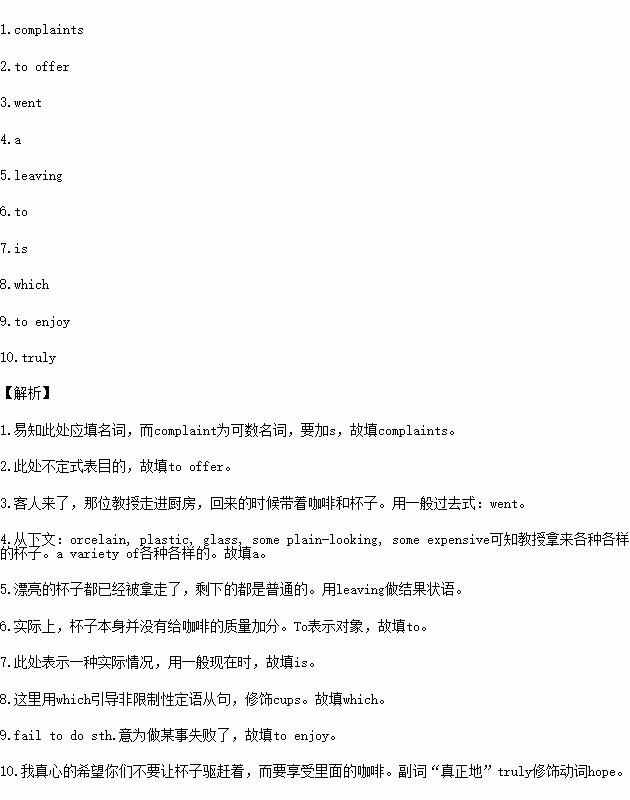题目内容
阅读下面材料,在空白处填入适当的内容(不多于3个单词)或括号内单词的正确形式。
Some students who had graduated visited their university professor. The conversation soon turned into1.(complain) about stress in work and life. 2.(offer) his guests coffee, the professor 3.(go) to the kitchen and returned with a pot of coffee and4.variety of cups—porcelain, plastic, glass, some plain-looking, some expensive—telling them to help themselves to the coffee.
It was when all the students had a cup of coffee in hand that he said, “All the nice-looking expensive cups have been taken up,5.(leave) behind the plain and cheap ones. Actually, the cup itself adds no quality 6.the coffee. What all of you really want7.(be) coffee, not the cup. You consciously went for the best cups, and then you began eyeing others’ cups.”
“Now consider this: Life is the coffee; the jobs, money and position in society are the cups,8.are just tools to hold and contain life. The type of cup we have does not change the quality of life . If we concentrate only on the cups, we fail 9.(enjoy) the coffee. I10.(true) hope that you will never let the cups drive you enjoy the coffee instead.”
 新课标阶梯阅读训练系列答案
新课标阶梯阅读训练系列答案
